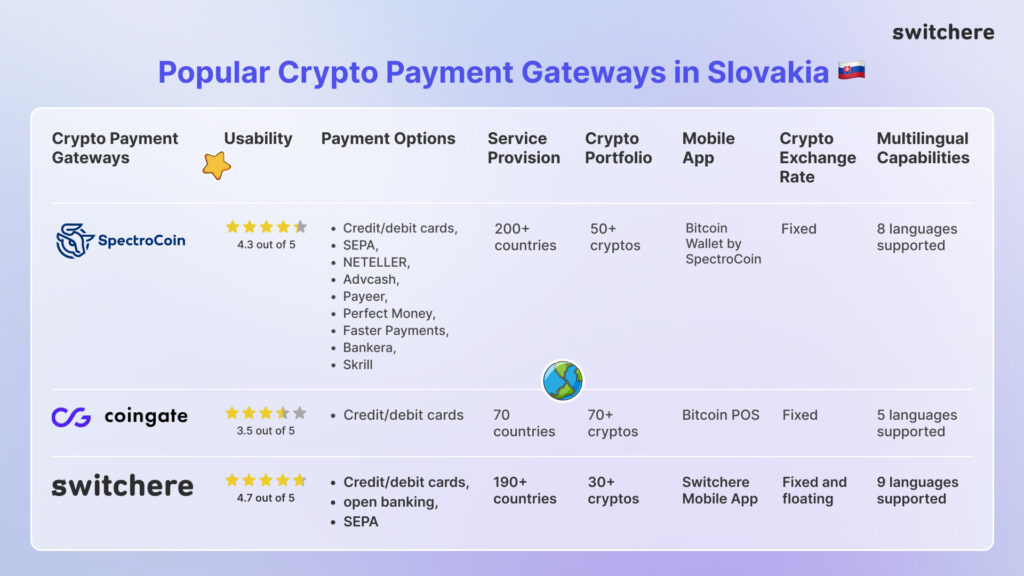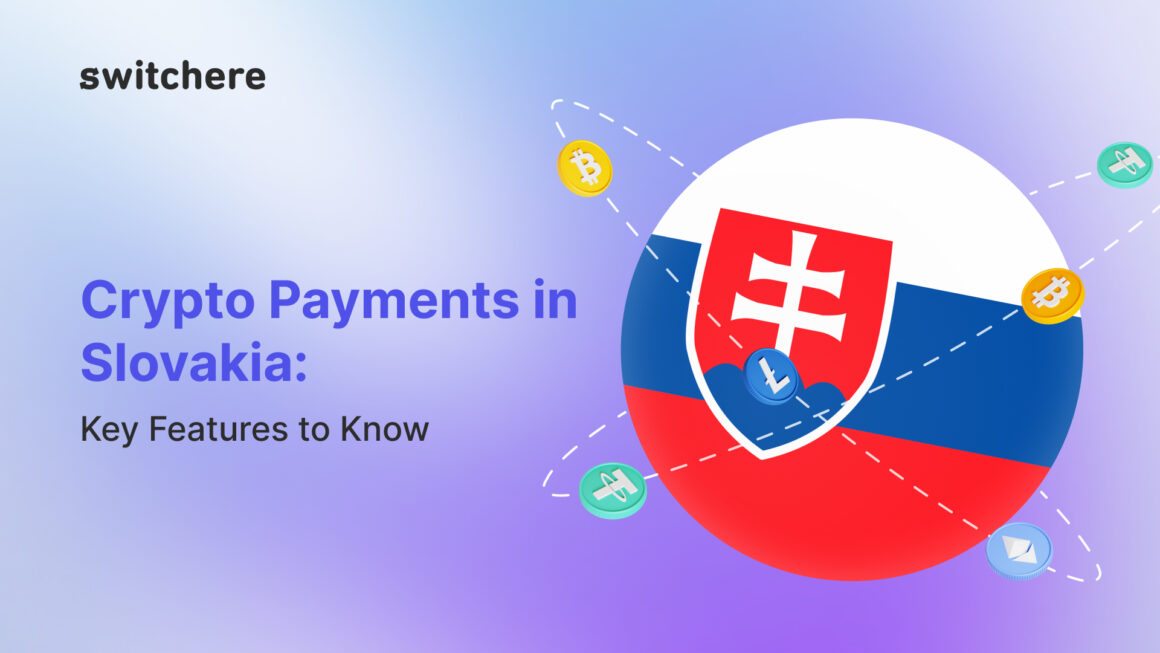The Slovak Republic can be undeniably considered a noteworthy player in the global virtual currency fintech industry, demonstrating a surge in interest and deployment over the past few years. The Slovak Republic, nestled in the heart of Europe, has not been immune to a transformative wave of blockchain-related solutions.
This being the case, this short thematic blog article delves into the current status of virtual currencies and the adoption of crypto payments in the Slovak Republic, exploring the key aspects connected with crypto regulation and crypto payment gateways.
Virtual Currency Landscape in Slovakia
Slovakia has favorably welcomed virtual currencies with growing enthusiasm, there reflecting the broader global tendencies. Even more, the country has witnessed an upsurge in virtual currency trading platforms, providing users with a seamless experience to buy, sell, and invest in digital currencies. Additionally, the expanding number of virtual currency ATMs across major cities signals a tangible acceptance of this decentralized form of currency.
Government Stance and Supervisory Framework
The regulatory provision in Slovakia has been methodically evolving to accommodate the advent of virtual currencies. The National Bank of Slovakia, the Financial Administration of the Slovak Republic, and similar regulatory institutions have been profoundly working on creating a fundamental basis to curate the usage of virtual assets to solve the challenges ignited by the decentralized nature of virtual currencies. The state approach in Slovakia is generally characterized by a cautious optimism aimed at guaranteeing consumer protection and prevention of illicit activities.
Crypto Payments and Merchant Adoption
One of the differentiating indicators of virtual currency arrogation is the integration of digital currencies into everyday transactions. In the Slovak Republic, there has been a notable increase in business entities accepting virtual currencies as a means of exchange. From cafes and restaurants to online retailers, a diverse range of merchants are embracing the advantages of virtual currency payments, including lower TX fees and faster international transfers. This trend reverberates with the global movement toward mainstream acceptance of virtual currencies in commercial TXs.
Crypto Licensing and Registering
Business entities functioning in the virtual currency environment are obligated to follow specific mandatory licensing and typical registration requirements in Slovakia. Digital currency exchange service providers are, as a rule, required to obtain a license from the NBS, which involves a thorough examination of their business operations, security measures, and compliance mechanisms. This licensing process is meant to ensure that these entities adhere to the robust standards of security and regulatory compliance.
Challenges and Concerns
Despite the positive strides, certain problematic issues persist in the Slovak virtual currency canvas. One major concern is the volatility of virtual assets, which can impact businesses that accept blockchain-based payments. Addressing the previously mentioned issues will be crucial for fostering the sustained expansion of virtual currencies in the Slovak Republic.
Popular Crypto Payment Gateways in Slovakia

CoinGate
The first crypto exchange facilitator under scrutiny is CoinGate. The company stands tall as one of the recognizable crypto payment gateways in Slovakia, offering a diverse range of cryptocurrencies for TXs. Its rich crypto portfolio provides businesses and consumers with flexibility in their payment choices. CoinGate’s user-friendly interface and transparent fee structure make it an attractive option for merchants looking to integrate cryptocurrency payments smoothly.
SpectroCoin
The second one is SpectroCoin. The company is a multifaceted crypto platform, and it has gained traction in the Slovak Republic for its comprehensive suite of services. In addition to serving as a payment gateway, SpectroCoin offers cryptocurrency exchange services and even provides users with cryptocurrency debit cards. This integrated approach allows businesses to not only accept crypto payments but also manage their digital assets efficiently, blurring the lines between traditional banking and the crypto sphere.
Switchere
The final representative is Switchere. Being a perfectly EU-licensed and seamlessly regulated virtual currency exchange service facilitator, Switchere has made a significant breakthrough in its service proposition by combining B2C and B2B models. The company is predominantly focused on providing smart and understandable crypto exchange services, whereas brand reputation and recognition come hand in hand.
Switchere offers a vast array of crypto products, tools, and solutions for businesses. The most noteworthy are fiat on-ramp and off-ramp, crypto payment gateways, token listing, and turn-key Switchere-powered NFT Checkout solution. The Switchere dev team guarantees full back-office infrastructure maintenance and assigns an advisor to help with business integration.
Conclusion
Conclusively, the present-day status of virtual currencies and crypto payments in the Slovak Republic reflects a nation in transition, embracing the opportunities presented by digital assets while carefully navigating the associated challenges. As the regulatory landscape evolves, the Slovak Republic has the aptitude to become a notable game changer in the virtual currency fintech niche, provided that regulatory frameworks continue to strike the delicate balance between cementing innovation and protecting stakeholders.
